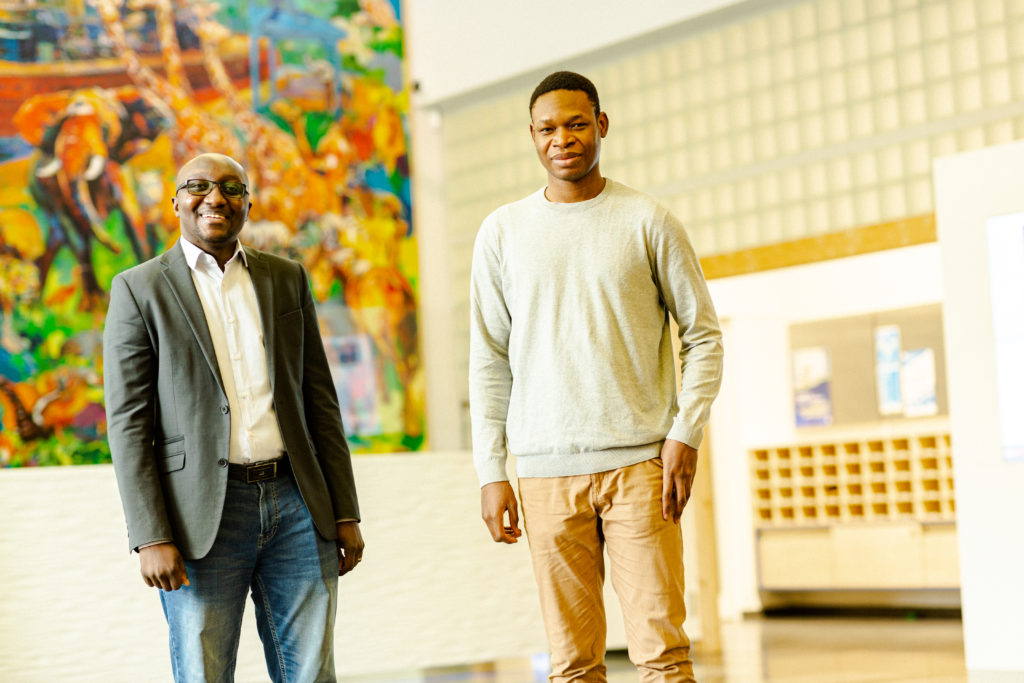With more than half a billion internet users, and a growing submarine cable network that will continue to boost the continent’s connectivity, Africa is a prime target for cybercrime. In fact, in August 2020, a report by Interpol defined online crime in Africa “a bigger threat than ever before”. While cybercriminals are taking advantage of the accelerated digitisation brought by COVID-19 at a global scale, many African countries lack the cybersecurity professionals they need to protect their users, companies and business hubs.

Thanks to the new LuxWays project — a cooperation between SnT, the Luxembourg Ministry of Foreign and European Affairs, and leading universities in Senegal and Burkina Faso — Luxembourg’s computer-science research community will train and mentor some of West Africa’s cybersecurity scholars — the very men and women who will be on the frontlines of Africa’s fight against cybercrime.
The LuxWays programme, launched at the end of 2020, will give elite computer science students at the University of Cheikh Anta Diop in Senegal, the University Joseph Ki-Zerbo in Burkina Faso, and the Virtual University of Burkina Faso, the opportunity to earn their Ph.D.’s at SnT in an academic cooperation with their home universities. Upon completion of their doctorates, students are intended to return to their home universities and become professors in their respective computer-science disciplines. “We need to train the trainers to create sustainable development”, says Prof. Tegawendé F. Bissyandé, the project leader at SnT. By having participants return to West Africa to teach, LuxWays aims to help build the local talent needed to jumpstart advanced computer-science education in the region. “This project will create so many opportunities for young researchers who will now be able to study computer science at home, instead of only a select few leaving the country, as I did in order to follow my chosen research path,” says Prof. Bissyandé. Once LuxWays graduates are installed as professors in their home universities, their institutions will have the possibility to increase the capacity of their computer science programmes, which are expected to ultimately award 60 Master’s degrees every year.
“We are very pleased to be working with SnT on a project that will create a lasting positive social and economic impact in our long-standing partner countries Senegal and Burkina Faso."
Franz Fayot, Minister for Development Cooperation and Humanitarian Affairs Tweet

Research and teaching in the LuxWays programme is designed to focus predominantly, but not exclusively, on cybersecurity. The cybersecurity focus will empower students to train the talent that francophone West Africa needs to ensure that its growing digital ecosystem — FinTech, artificial intelligence, digital citizen services, and much, much more — has the cybersecurity talent needed to protect citizens, businesses and the society at large. “We are very pleased to be working with SnT on a project that will create a lasting positive social and economic impact in our long-standing partner countries Senegal and Burkina Faso,” said Franz Fayot, Minister for Development Cooperation and Humanitarian Affairs. The Ministry of Foreign and European Affairs, is supporting the project through its Digital4Development (D4D) programme. “Including capacity building and cybersecurity projects into our development cooperation activities is crucial to promote an enabling environment for digital tools that contribute to inclusive and sustainable growth. Especially the young generations can thereby seize economic opportunities and improve their livelihoods.”
“This project will create so many opportunities for young researchers who will now be able to study computer science at home."
Prof. Tegawendé F. Bissyandé, SnT Tweet
The influx of African perspectives into SnT’s research community here in Luxembourg will also bring with it the opportunity to imagine and explore new approaches to familiar problems. Africa’s uniquely mobile-driven connected culture requires more agile and flexible ICT solutions. The developments needed for cybersecurity solutions to be effective in this area are sure to push the field further in Luxembourg and the EU as a result. On a planet that will soon welcome over a billion new internet users into our global community, developing ICT for use in the African context will ensure our cybersecurity systems are up to the challenge.